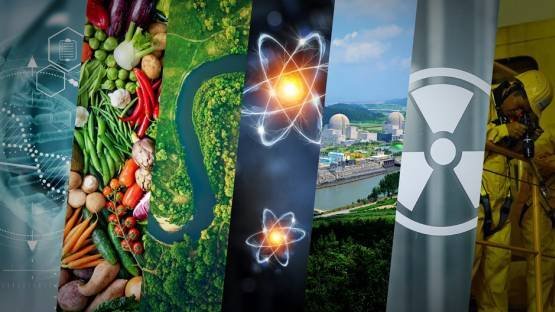Over the past decade, artificial intelligence (AI) has evolved rapidly, becoming increasingly sophisticated and capable of solving ever more complex problems. AI is deployed in sectors as diverse as manufacturing, transportation, finance, education and healthcare. In a similar vein, it has the potential to advance the development of nuclear applications, science and technology. Harnessing its capabilities in the nuclear field can positively contribute to addressing some of today’s most pressing challenges, from food security to climate change.
Here are some ways in which AI has and will continue to benefit the peaceful applications of nuclear technology. These are discussed in more detail in a new IAEA publication, Artificial Intelligence for Accelerating Nuclear Applications, Science and Technology.
1. Human health
AI can contribute to combating diseases. It is already applied to support the diagnosis and treatment of cancer through improved image interpretation and precise tumor contouring, enabling more accurate treatment plans and adaptive radiotherapy — a process tailored to the anatomical characteristics of the individual patient. The IAEA has recently launched a coordinated research project in this area.
AI will also play an important role in the IAEA’s Zoonotic Disease Integrated Action (ZODIAC) initiative to help experts better understand the impact of zoonotic diseases on human health and predict, assess and contain future outbreaks of such diseases.
Continue reading: https://www.iaea.org/newscenter/news/seven-ways-ai-will-change-nuclear-science-and-technology
Here are some ways in which AI has and will continue to benefit the peaceful applications of nuclear technology. These are discussed in more detail in a new IAEA publication, Artificial Intelligence for Accelerating Nuclear Applications, Science and Technology.
1. Human health
AI can contribute to combating diseases. It is already applied to support the diagnosis and treatment of cancer through improved image interpretation and precise tumor contouring, enabling more accurate treatment plans and adaptive radiotherapy — a process tailored to the anatomical characteristics of the individual patient. The IAEA has recently launched a coordinated research project in this area.
AI will also play an important role in the IAEA’s Zoonotic Disease Integrated Action (ZODIAC) initiative to help experts better understand the impact of zoonotic diseases on human health and predict, assess and contain future outbreaks of such diseases.
Continue reading: https://www.iaea.org/newscenter/news/seven-ways-ai-will-change-nuclear-science-and-technology

